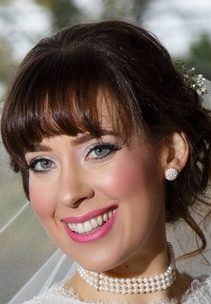Discipline and Dessert

The first words I heard weren’t, “Gut Shabbos,” but “Only the Kohanim in the Beis Hamikdash were allowed to be barefoot!”

I was seven years old when I first met Dr. Alexander Schonfeld ztz”l. Ma had been attending his shiurim for a while, and she invited him for the Shabbos meals. I skipped to the door in my flowered cotton dress to usher in Ta and our guest.
The first words I heard weren’t, “Gut Shabbos,” but “Only the Kohanim in the Beis Hamikdash were allowed to be barefoot!”
Standing in the entranceway was a pale-skinned, blue-eyed, gray-hatted gentleman with a Roman nose and a spare frame. I blinked, puzzled. He pointed at my feet, his expression stern. Yes, they were unshod, but they always were when indoors, as were Ma’s, usually.
I meekly padded off to rustle up some slippers, and from then on never dared to be without some form of footwear when he knocked, which was frequently for the next two decades or so.
Dr. Schonfeld was born in Austria, and was sent to Britain on the Kindertransport during World War II. After living in various countries around the world — England, Canada, America — he finally settled in Israel, in the Old City. He spoke with a refined English accent; he carried himself with European comportment.
He was a psychologist, and traveled to the US to see his patients, usually staying for two week stretches. He slept nearby at another home — the family that hosted his shiurim insisted he stay with them too — while he came to us for the Shabbos meals.
There was a bit of a learning curve in how to serve him. Dr. Schonfeld wouldn’t take any food if it was served on a platter; it had to be plated and placed near him. The dish couldn’t be groaning with offerings, either — if there was too much, he’d consume nothing.
Ma figured out the system: one slice of gefilte fish; one small portion of soup with a healthy dose of lukshen; one medium-sized piece of schnitzel paired with a few spoonsful of farfel. How she analyzed that piece of chicken before sending me into the dining room with it!
The doctor had a weakness for sweets; the only time he showed any eagerness for food was when a slice of cream cake appeared at his elbow. He would draw the plate close, then delicately dig in.
As the youngest, it had become my practice, in general, to slip away from the dining room and sit in the kitchen with a book. Few were interested in a child’s musings, and the conversation usually went over my head. But as I grew older, I began to find his words fascinating and drifted back to the table, sitting rapt and silent.
He and Ta would engage in feisty debates, their Gemara sources whizzing back and forth like a shuttlecock. But with Ma, he’d speak in uninterrupted monologues, calmly explaining how the world works and what our task in it is. He preached the sacred in the mundane. “When you’re washing that pot, you’re fulfilling your tafkid,” was a saying of his Ma would echo.
He spoke of human relationships. He spoke of emunah and its harder-to-grasp relative, bitachon. He spoke of the mystical and the rational. He spoke for hours, sometimes near midnight, his voice low, scratchy, British-accented, and mesmerizing.
If Ma asked me to do something, and I didn’t move fast enough, he would reprimand me. “They’re giving out diamonds!” he chastised. “Jewels!” I scurried from the room to carry out Ma’s request, his reminder of the rewards of kibbud eim nipping my heels.
It seemed no matter where we went, Dr. Schonfeld was always meant to be there. When we moved to be closer to my siblings, serendipitously, Dr. Schonfeld’s daughter lived near our new home, with an even closer walk than his previous accommodations. And so our meals with him continued.
Dr. Schonfeld eventually stopped traveling overseas, and so we would visit him on our trips to Israel. He and his wife had relocated from the Old City to Beit Chilkiya; initially, the GPS was never able to find the town when we visited them. We would have to guide the frustrated taxi drivers as Dr. Schonfeld bellowed instructions over the phone.
In his house, overlooking endless green rippling fields, he would continue to speak. It didn’t matter that I’d heard his concepts 20 or a hundred times; these ideas would ground me, settle my mind, make me feel safe and secure in Hashem’s embrace.
When he heard the news of my mother’s illness, he called me. His voice broke as he shared our pain, and yet he spoke again of bitachon, strengthening my tie with Hashem in a time of exhaustion and grief.
After I married, Ta emailed him the link to our wedding video; later, I had the joy of introducing my husband in person. He settled us in his living room, and we two sat enraptured. But it was clear that his health was waning. When I was told a little over a year later that he’d passed away, the air left my lungs.
In retrospect, Dr. Schonfeld was my grandfather figure. Ta’s father died before I was born; Ma’s father passed when I was nine. To my mind, my Zeidy Spitzer and Dr. Schonfeld had a number of similarities. Both were European gentlemen; both spoke with measured words; both loved dessert.
He was a connection to a certain mindset: that it is the everyday service and practice that is the most important. My grandfather would rise every morning at four a.m., even the day after his children’s weddings, to prepare for davening. Dr. Schonfeld had a similar schedule that he abided by fiercely. Purposefulness, self-discipline — these are the qualities he modeled.
He was a part of our lives for over 25 years — a large chunk of my life, now that I feel the vacuum of his absence. It was he who taught me that there are no tedious tasks, that drudgery can be elevated with spiritual intent. Over chicken and cake, he reminded us that the Eibeshter handles everything, so there’s no need to worry.
And I remember that every time I see a slab of seven-layer cake.
(Originally featured in Family First, Issue 738)
Oops! We could not locate your form.







